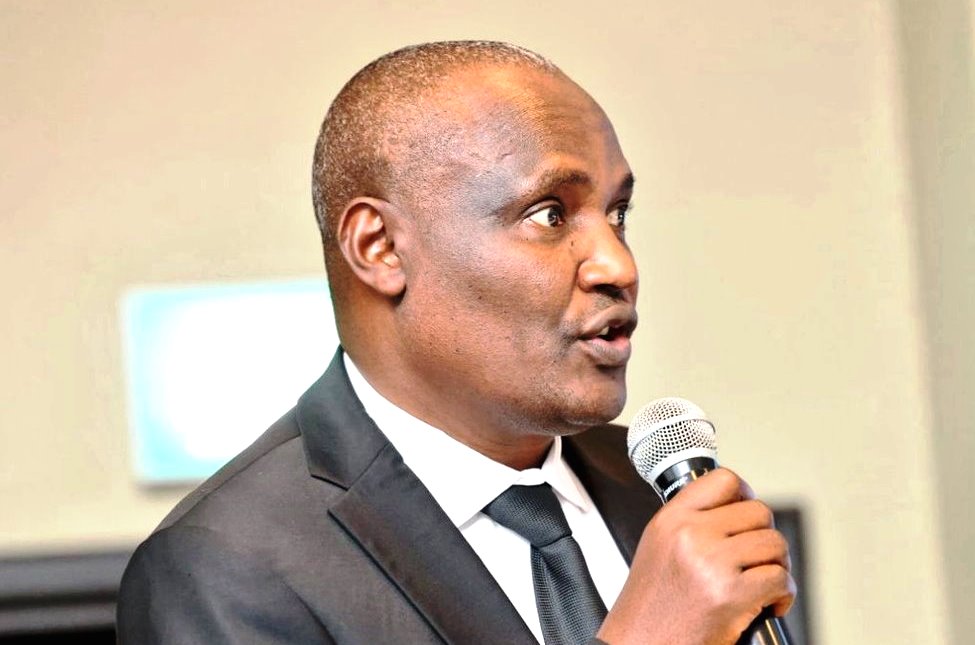Eddah Wanjiku Mbiyu, one of the administrators, told the court that the estate’s administrators, through a court order, sold 100 acres of Closeburn Estate for KSh 1,160,000,000. The court partially distributed the proceeds on 28th May 2010, leaving a balance of KSh 890 million, which was deposited in Co-operative Bank Limited. In her affidavit, she stated that the funds were later transferred to Ecobank Limited by the estate’s advocates, who operated the account without the administrators’ knowledge
The family of the late former minister, Mbiyu Koinange, is seeking a court order compelling Ecobank to pay them KSh 284 million. In their application, the family accuses the bank of unlawfully allowing the withdrawal of the funds in contravention of a court order. They are now seeking a directive for the bank to return the money with interest.
Represented by Senior Counsel Paul Muite, the estate also wants the court to order Ecobank Kenya Limited to disclose and provide detailed information on all amounts withdrawn from the account, along with the identities of all beneficiaries, pending the hearing and determination of the case.
SC Muite informed the court that the estate of the late Mbiyu Koinange sold 100 acres of Closeburn Estate, and the proceeds of KSh 890 million were deposited in Co-operative Bank Limited. Advocates acting for the estate’s administrators subsequently transferred the funds to an account at Ecobank Limited.
The court later distributed portions of the funds to beneficiaries, and in a court order dated 26th July 2011 by Justice David Maraga, CJ (as he then was), Ecobank Limited was directed to hold the remaining KSh 284 million at its Ecobank Towers Branch.
The money was intended to settle the beneficiaries as the administrators applied, subject to court approval or direction. The court was told that the funds held by Ecobank Kenya Limited were not to be paid out, withdrawn, or otherwise expended without court authority or orders.
“Ecobank Limited unlawfully, irregularly, and without court authorisation or the applicant’s consent, allowed the funds to be withdrawn, contrary to the court orders issued on 26th July 2011, to the detriment of the applicant and the entire estate of the late Mbiyu Koinange,” SC Muite informed the court.
He further stated that in its judgment delivered on 7th May 2020, the court confirmed that none of the advocates provided a plausible explanation as to why the KSh 284 million should not be repaid to the estate of Mbiyu Koinange.
“The applicant, being an administrator and beneficiary of the estate of Mbiyu Koinange, is entitled to her share of the KSh 284 million, and the entire estate is entitled to the sum, which the court has directed be shared equally among the identified beneficiaries,” the court heard.
Eddah Wanjiku Mbiyu, one of the administrators, told the court that the estate’s administrators, through a court order, sold 100 acres of Closeburn Estate for KSh 1,160,000,000. The court partially distributed the proceeds on 28th May 2010, leaving a balance of KSh 890 million, which was deposited in Co-operative Bank Limited.
In her affidavit, she stated that the funds were later transferred to Ecobank Limited by the estate’s advocates, who operated the account without the administrators’ knowledge. The court subsequently distributed part of the funds to beneficiaries, leaving a credit balance of KSh 284 million. Former CJ Maraga, in orders issued on 26th July 2011, directed that the balance be held by Ecobank Limited and not be paid out without a court order.
“It later came to my attention that Ecobank illegally and irregularly caused the entire sum of KSh 284 million to be withdrawn without court permission,” Eddah told the court. She added, “As a beneficiary of the estate, I am entitled to my share of the KSh 284 million plus interest, which the court has ruled is owed to the estate of the late Mbiyu Koinange. As an administrator, it is my duty to ensure beneficiaries receive their share, but Ecobank failed in its fiduciary duty by allowing the withdrawal of funds without a court order, despite the fact that the funds were deposited through a court directive.”
SC Muite informed Justice Ogolla that Ecobank, as shown in the account opening forms, was aware the funds belonged to the estate of a deceased person. He added that under the Law of Succession Act, a court order was mandatory before any withdrawals, whether or not the order had been served on the bank. “In any event, due diligence required the bank to demand a court order as a prerequisite for opening the account,” SC Muite told the court.





